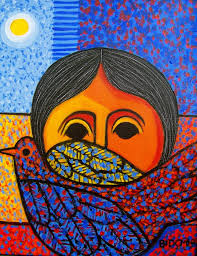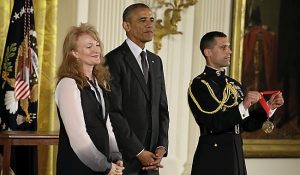In these days I often remind myself that, as Martin Luther King Jr. told us, “The arc of the universe is long, but it bends toward justice.” While I fervently believe this is true, at times like these I need a bit of reassurance.
That reassurance came earlier this week when I was emailed a link to a new eBook by Ken Wilber entitled, Trump and a Post-Truth World: An Evolutionary Self-Correction. You should know Ken Wilber if you don’t. Some find him a bit hard to take as he sometimes comes off as though he thinks he is the smartest guy in the room. I suspect this may because he is the smartest guy in the room.
While much of what we think of as scholarship drills down into the details of what is, Wilber, as an integral philosopher, is always using the details to construct the largest possible picture of what is. In this 80 page freely distributed book [It’s a pdf. You don’t even need a special reader.] he draws deeply from aspects of integral philosophy to explain what is happening in our world politically and to offer a perspective on what we can do to heal it.
It helps a lot to have a background in AQAL theory and Spiral Dynamics. You can find lots of resources online to explain these terms more fully than he does in the book. But ultimately you will be able to follow his thread if you stay with it.
The bottom line is that while the current crisis is the horrific disaster we think it is, it is also a necessary and ultimately healthy corrective in the progress of evolution to greater health and wholeness for humans and the planet. Or at least it can be. But it will be only to the degree to which we don’t let our fears cause us to regress and follow the paths of hate and division. We will, as one of the earliest authors of nonviolence taught us, have to learn to love our “enemies.”
Read it yourself and then let’s talk about it.
[button link=”http://integral-life-home.s3.amazonaws.com/Trump%20and%20a%20Post-Truth%20World.pdf?mc_cid=7bc27b87f1&mc_eid=8b762109e6″]Trump and a Post-Truth World[/button]
http://integral-life-home.s3.amazonaws.com/Trump%20and%20a%20Post-Truth%20World.pdf?mc_cid=7bc27b87f1&mc_eid=8b762109e6



